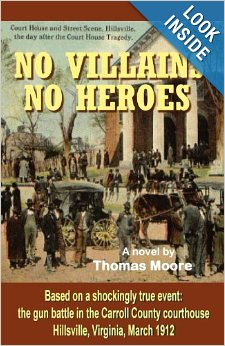On becoming an historian long ago, I was most attracted to the period of American history from Jefferson to the great conflict of 1861-65. Were I a young historian today, rather than one well over the hill, I think I would take up instead the Progressive Era—historians’ convenient label for a period covering roughly the last two decades of the 19th century and the first two of the 20th in American history. This was the fascinating and critical time of “modernization”—another convenient label—that created the American nation we have long known. And which nation is now fast disappearing into a postmodern multicultural empire.
The triumph of state capitalism, militarism, and moralistic crusading in the Great Unpleasantness put the United States (now the United State) on the road to, and determined the content of, “modernization” and “progress.” But the principled republicanism of the old Union was so strong and so widely beloved that it could not be uprooted easily. It took the Progressive Era’s centralization (of society as well as government), industrialization, immigration of new European hordes innocent of American traditions, and World War I to complete the process.
This latest novel from Thomas Moore, author of The Hunt for Confederate Gold, recreates one struggle (among many) in the long Progressive war against the old republicanism. Moore’s book explores a real incident: a gun battle that took place at the Hillsville, Virginia, county courthouse on March 14, 1912, during a murder trial. The battle left five dead—including the judge and prosecutor—and seven wounded. It brought about the swift trial, conviction, and execution of the defendant, Floyd Allen, and his son, and probably inspired later clandestine official murders of members of the Allen family. The incident might be more familiar today had it not been pushed off the front pages by the sinking of the Titanic a few weeks later.
As told by the author, there is more to the story than the criminal act that meets the eye. As is usual in such cases, who fired first is in question. Floyd Allen and his extended family were old-time Southern Democrats who constituted a substantial block of political power. The county administration was Republican and dedicated to the proposition that Northern capital was going to bring progress and prosperity to the Blue Ridge, and the Allen clan was an obstacle to this obviously good and great work. The officials were far from guiltless in the conflict, having harassed the Allens and made them the victims of a perverted and rigged judicial process. The county “peace officers,” it seems, were anything but, while the facts of the incident that first brought Floyd Allen to trial for his life were unclear and involved a great deal of partisan official abuse. That abuse did not end on March 14. It continued with the too hasty execution of Floyd Allen and the overtly unjust execution of his son Claude, who had done nothing in the gun battle except defend his father from assailants.
The story is told in sober hindsight by a character who, at the time, was a private detective, one of the hired guns used by the county officials to hunt down the Allens. In retrospect, the executed were not truly villains, and the administrators of “justice” were certainly not heroes. All were caught up in a battle larger than themselves. No Villains, No Heroes is a significant tale, vividly told. It is part of the history of the triumph of the forces of profit and progress and their ruthlessness in crushing those who challenge their agenda.
[No Villains, No Heroes, by Thomas Moore (Pawleys Island, SC: ProsePress) 269 pp., $14.95]

Leave a Reply